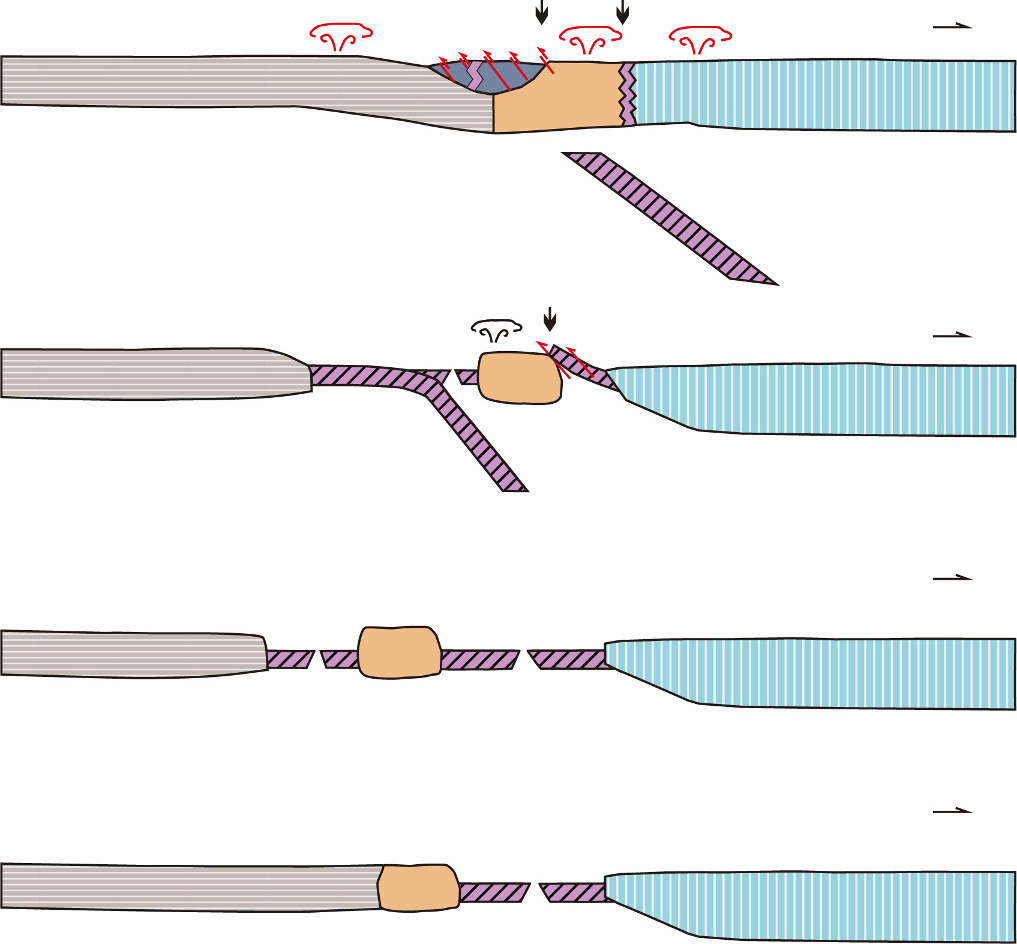91755209-ESR:Exploring a lost ocean in the Tibetan Plateau: Birth, growth, and demise of the Bangong-Nujiang Ocean
ABSTRCT:The vast eastern-Tethyan oceanic domain that throughout the Mesozoic extended between Gondwana and Eurasia was a puzzle of larger and smaller microcontinents separated by larger and smaller oceans, the paleogeographic reconstruction of which poses major challenging problems. This review article summarizes the available stratigraphic, sedimentological, petrological, geochronological, geochemical, tectonic, and paleomagnetic evidence on the Bangong-Nujiang suture zone and adjacent geological domains now at the heart of the Tibetan Plateau, with the final aim to reconstruct the history of the Bangong-Nujiang Ocean from its birth to its growth and final demise. The vivid debate on these highly controversial geological issues touches on several key problems in plate tectonics, including the birth of an ocean, the nature of microcontinents and seamounts, the initiation of oceanic subduction, the implications of subduction polarity, and the timing of continental collision. Rifting between South Qiangtang and the Lhasa blocks took place in the Early to Middle Permian. The Bangong-Nujiang Ocean was still narrow in the Late Permian. The Triassic saw the rapid northward drift of South Qiangtang and active sea-floor-spreading in the Bangong-Nujiang Ocean, which reached a maximum north–south width of ~4000 km in about 50 million years. In the Early Jurassic (~190–180 Ma), Bangong-Nujiang oceanic lithosphere began to subduct northward. After some 30–40 million years of oceanic subduction, documented by arc magmatism and high-pressure metamorphic rocks, the Bangong-Nujiang Ocean closed its northern branch (the Dongqiao-Amdo ocean) in the latest Middle Jurassic (166–163 Ma), when the Amdo and Dongkacuo microcontinents collided with South Qiangtang. The southern oceanic branch (the Beila-Nagqu ocean) closed in the latest Jurassic (150–145 Ma) at the onset of collision between the Lhasa and Qiangtang blocks. Early Cretaceous (140–120 Ma) syncollisional arc-type magmatism was widely distributed in the Lhasa-Qiangtang collisional zone. At earliest Late Cretaceous time, the complete demise of seaways and the transition to widespread deposition of continental red beds along the Bangong-Nujiang suture zone marked the onset of intracontinental convergence leading to initial uplift of the Tibetan Plateau.

.png)
